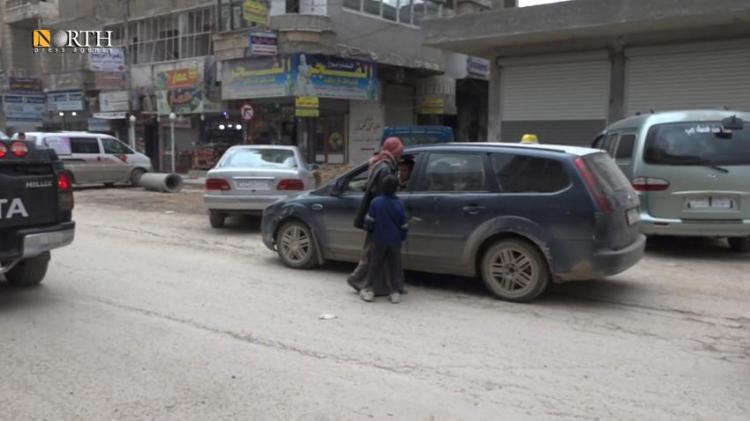Raqqa – North-Press Agency
Autonomous Administration officials and civil activists in Raqqa attributed the increase in the number of beggars in the city during the month of Ramadan to unemployment and lack of job opportunities, stressing the necessity of concerted efforts by concerned parties to address this social problem which has worsened during the war years.
Abdulselam Hamsourk, co-chair of the Social Affairs and Labor Committee in Raqqa’s Civil Council, told North-Press that “begging is unusual in our society. There was little of it before as compared to after the war.” He attributes the increasing number of beggars to lack of resources and job opportunities.
Hamsourek pointed out that the solution to the begging problem is to increase the number of economic projects, provide job opportunities, and concentrate the efforts of all institutions, considering that civil society organizations are also concerned with facing and preventing this issue.
The Social Affairs and Labor Committee does not have any accurate statistics about the number of beggars in Raqqa, though it is working on a plan in cooperation with some associations and organizations to monitor the beggars’ conditions and understand their needs and the reason they beg, Hamsourek clarified.
"But since the beginning of the precautionary measures to combat the new coronavirus and the curfews in northeastern Syria, the committee has focused on providing relief aid to those in need," he added.
Abdullah al-Khalil, a communication officer at the Community Support Center (a non-governmental organization), pointed out that "the most important reasons for the spread of begging are unemployment, lack of work opportunities, and the arrival of many displaced people to Raqqa, where people are unable to differentiate those who really need help and those who beg as a profession.”
According to al-Khalil, “civil society organizations are unable to tackle the problem alone, so controlling it requires great efforts and coordination to find out who really needs help."
Begging is increasing throughout Syria after ten years of war, with half of the population displaced inside and outside the country.
Economists believe that the Syrian crisis, ongoing since 2011, has caused 80% of Syrians to live below the poverty line as the inflation rate exceeds 2000%.

